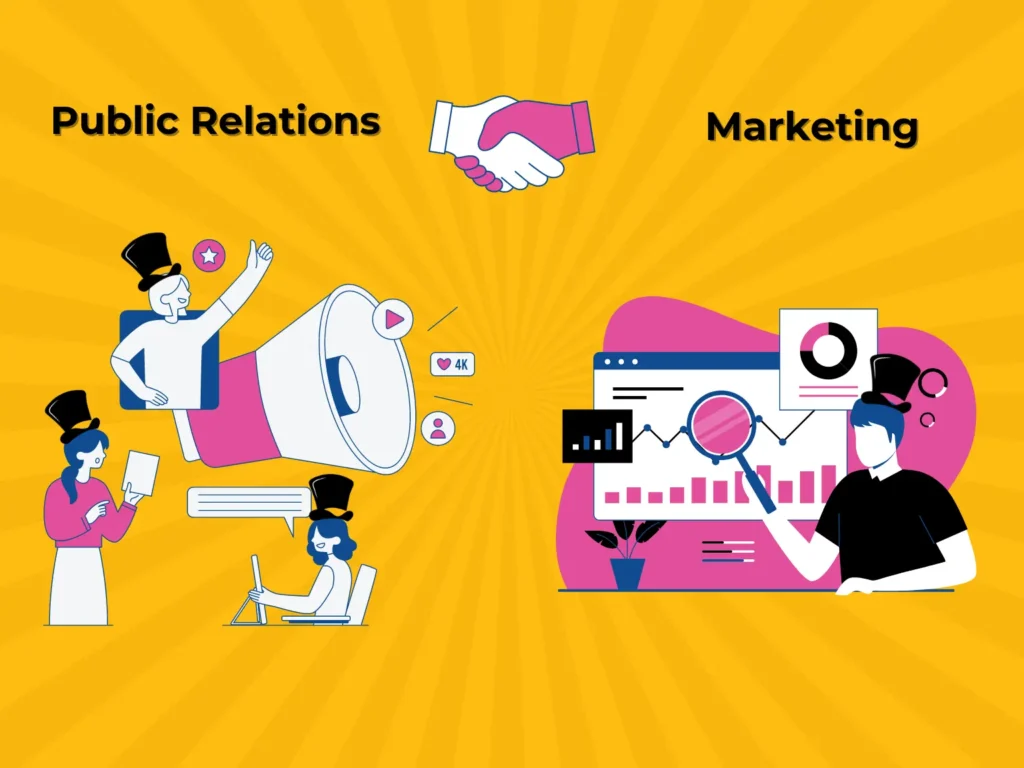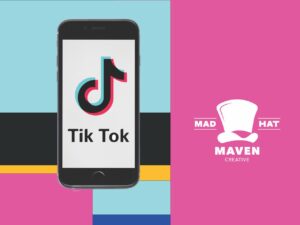
Sometimes, when we speak to a new client, they have many questions about public relations (PR), marketing, search engine optimization, and web development. We have the answers. Mad Hat Maven has been fortunate to recruit the best of the best to oversee PR and marketing. So, do you need a publicist or a marketing consultant? Or do you need PR and marketing combined with a strong digital strategy?
Let’s break down the differences between PR and marketing services.
Public Relations and Marketing are closely related but serve different purposes:
- Purpose for PR and marketing services
- PR focuses on managing a brand’s reputation and building relationships with the public, media, and stakeholders. Our publicists monitor social media and provide copywriting, event management, media training, and press release distribution.
- Marketing focuses on promoting and selling products or services to drive revenue. It strongly supports a business’s sales, whether digitally or traditionally.
- What do we do all day?
- PR involves media relations outreach, crisis management, following up on press releases, event planning, and brand reputation management. We pick up the phones and don’t rely on only digital comms.
- Marketing comprises market research, developing strategic plans, creating advertising budgets (Google, Hulu, magazines, outdoor media, etc.), managing social media campaigns, creating content, and supportive sales strategies.
- Approaching each audience
- PR aims to create a positive public image and long-term trust with communities, the media, and prospective and loyal clients.
- Marketing aims to attract and convert customers to help boost sales. After market research, our team can strategize effectively.
- Control over PR and marketing messaging
- PR relies on earned media, not paid (news coverage, word of mouth, social media), and has less control over how messages are received. Journalists will run with a story that fits their agenda; however, we must carefully understand their agenda during a pitch. With over 50 years of combined experience, our PR team knows the questions to ask to help protect our clients.
- Marketing relies on paid media (ads, sponsorships) and owned media (websites, social media) and has more control over messaging. Marketing also ensures website maintenance is up to date, which includes security certificates, content, and regular search engine optimization audits.
- How do we measure success?
- PR achievement is measured by brand perception, media coverage, and public sentiment. It’s not all about how many media placements a client receives; it’s also about spreading the news via other outlets that reach the target market.
- Marketing success is measured by sales, conversions, and return on investment (ROI). But clients must understand that it does not happen overnight. By sticking to a carefully crafted six-month strategy, clients have more control over success.
Hand in hand – how PR and marketing work together
PR and marketing often overlap. An effective PR strategy enhances marketing efforts by improving brand credibility, while marketing helps amplify messages through targeted campaigns. Many businesses integrate both for a well-rounded approach to success.
Here are a few examples of how PR and marketing work separately and together:
- Product Launch
- PR: The company distributes press releases to journalists, invites media to review a product or service, and arranges interviews with executives to create buzz.
- Marketing: A company launches a new product or service and promotes it through paid ads, email campaigns, and influencer partnerships.
- Social Media & Brand Wakefulness
- PR: The brand partners with celebrities or influencers featured in magazines and online articles, boosting its image without direct advertising. Sometimes, hiring celebrities and influencers can cost a pretty penny, so be aware that it’s not always free.
- Marketing: A brand runs social media and digital ads targeting the right target market, offering discounts and special promotions. This can also segue into advertising plans by budgeting and scheduling an ad term in other platforms, including print, outdoor, streaming, and broadcast.
- Event Promotion
- PR: The PR team obtains media coverage on news websites, arranges radio or podcast interviews, and/or organizes press events
- Marketing: Utilizing digital ads, email marketing, and optional giveaways at events (raffles, live and silent auctions, etc.) help drive attendance and ROI.
How PR and marketing Collaborate
While marketing runs digital ads and influencer campaigns, PR focuses on online and print features, including blogs and product placement.
And voila! Marketing drives immediate sales, while PR builds credibility and long-term trust.
Companies should weigh budgets, goals and overall needs when choosing PR and marketing services. Sometimes, companies start with marketing, and after the foundation has been constructed, they add PR to the mix. Others want a robust campaign built to move the needle with solid PR and marketing campaigns.
Contact us if you would like a free consultation about your company’s needs.



